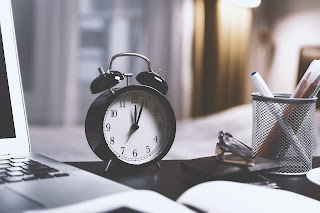How Much Rent Can you Afford? Calculating the Right Rent Payment
How
Much Rent Can you Afford? Calculating the Right Rent Payment
If you are currently looking to rent an apartment, usually the first thing you need to figure out is how much rent can you truly afford per month. As you are limited by your income, most landlords will take this into account when discussing your monthly rent because they just want to make sure you have enough money every month to pay them. But, what they do not take into account, and what you should definitely take into account, are the other monthly living expenses that expensive and that people sometimes forget to include when determining how much rent they can pay without breaking the bank. Just because you can get approval from a landlord saying that you can rent an apartment at X dollars a month, does not actually mean you can afford it. Its important to take a look at your entire personal budget before seeing what you can and cannot afford to pay in rent. Once you have considered your current situation and your personal budget, than you can definitely find the perfect place that you love and can afford without running a deficit.
What You Can Afford to Pay for Rent
1.) Personal Circumstances
Before even beginning to look at
apartments, you need to figure out what your living situation is going to be
like. Are you planning on having a roommate to split the bills with? Or are you
going to be living alone. Having someone to split the bills with, allows you to
rent out a much more expensive apartment as you are not paying the entirety of
the apartment alone. Also, if you are married with kids, you will definitely
need more than just one bedroom. If you have animals, you need to find a place
that accommodates your family and there might be a monthly cleaning fee if you
decide to move in with your animal. It’s very important to figure out what your
ideal living situation is before you start looking for your new apartment, it
will definitely make things easier for you in the future.
2.) Knowing your Limits
The rule of thumb for most property owners is that your monthly after-tax income is roughly three times your monthly rent. If you have a roommate, than half of your income must be at least three times your rent. This is because as a property owner, you want to confirm that a potential tenant will be able to pay their rent. While you should try to avoid spending 1/3 of your after-tax income on rent, I have provided some quick calculations to help you out on how much rent you should be paying based on your after-tax income:
- If you are earning $4,000 a month, your rent should be no more than $1,333 a month
- If you are earning $3,000 a month, your rent should be no more than $1,000 a month
- If you are earning $2,500 a month, your rent should be no more than $833 a month
- If you are earning $2,000 a month, your rent should be no more than $666 a month
If you are sharing rent with a roommate,
simply multiply the above rent maximums by two.
3.) Estimating the Cost of Utilities
Although you are paying a hefty sum of
money for your rent, you also cannot forget that you need to pay for water, gas
and electricity to keep your home nice and warm throughout the year. Now, its
important to chat with your potential landlord as sometimes they might include
certain utilities in your rent. My personal experience was that water was
included in my rent but electricity and gas were not included, I was expected
to pay for them with a third-party service.
The cost of utilities can vary from person
to person depending on a number of factors. As an example, apartments that have
a central air conditioning system are often more expensive than the more common
window air conditioning units. This is because a Window AC unit is built to
cool off a single room and a central AC unit is expected to cool off an entire
apartment. Also, smaller apartments with lower ceiling take a lot less heat
than larger apartments or those with higher ceilings as there is less space.
Also, depending on where you are located, some countries have specific utility
providers that are more expensive than others. The place I am located has a
single utility provider that is run by the government which forces everyone to
pay a set variable price every month rather than being able to shop around for
the best price. If you want to learn how to cut down utility costs, check out
my other blog post on cutting costs here.
Just to give you some numbers, in my current
apartment, I pay about $50 a month for electricity and gas for my medium-sized
3 1/2 apartment. I have spoken to others and this seems to be the average for
most people. If you are planning on moving to a new area where you do not know
the average utility price, the best way to get a sense of the true cost of
living is to speak with other tenants in the building that you are looking at
or even the current tenant of the apartment you are looking to rent. This will
provide you a relatively good idea of the trust cost of your potential utility
bill.
4.) Calculating your Expenses other than
Rent
Chances are that you are going to have a
lot more monthly bills to pay than just your rent. This includes, but is not
limited to, your cell phone bill, car payment, auto and home insurance etc. You
will also need to pay for basic needs like groceries, toiletries, clothing and
basic furniture.
To provide transparency and to give you an
idea of my monthly bills, I have included some of my expenses below:
- Car insurance - $100
- Apartment insurance - $30
- Cell Phone Bill - $60
- Groceries - $200
- Gasoline - $120
- Wifi/Internet - $75
- Train Pass - $100
- Toiletries and clothes - $60
You will definitely need to factor in all
of these additional monthly costs into your personal budget to determine how
much money you have left to pay rent each month.
5.) Summarizing Everything
Once you have taken the time to understand
your living situation, how much money you earn each month and how much money
you spend every month, this will give you an understanding of how much money is
left to spend on rent. As an example, let’s say I take home $2,500 every month.
Income
- After-tax monthly income - $2,500
Expenses
- Electricity and Gas - $50
- Car insurance - $100
- Car payment - $250
- Apartment insurance - $30
- Cell Phone Bill - $60
- Groceries - $200
- Gasoline - $120
- Wifi/Internet - $75
- Train Pass - $100
- Toiletries and clothes - $60
Maximum Rent Allocation (Income - Expenses) - $1,455
According to my budget above, I can spend
$1,455 each month on rent and break even every month, no money saved but I will
not have to take out any debt to survive. So out of my $2,500 after-tax
take-home pay, which leaves me $1,455 for rent, we can see that I could rent an
apartment that far surpasses the expect $833 in rent that the 1/3 rule would
allow me to rent. This is because $833 is 1/3 of my $2,500 take-home pay. But, I
know very well that I should not be spending every cent I have left on rent, so
the extra money between my potential $1,455 of rent and my expected $833 of
rent, which is $622, should be allocated to other areas like investing,
healthcare costs or allocated directly to my retirement. Rather than live in a
bigger apartment that might not be necessary, I can take this additional money
every month and keep it as an emergency fund to protect myself just in case I
lose my job and once I have a big enough emergency fund, than I will
concentrate on investing and adding to my retirement.
Final Thoughts
Before even looking for a new apartment,
you should know how much rent you can afford. If you do not know your limits,
you can easily end up paying more than you can afford and making yourself
suffer for the next 12 months trying to find ways to cut down on luxuries.
Can you suggest other ways to save money on monthly expenses? How do you decide what is the right amount of rent to pay? Let me know down in the comments!




Comments
Post a Comment